
Estonia’s Top Diplomat: Stop Putin Now or Prepare for NATO-Russia War
SUBSCRIBER+EXCLUSIVE INTERVIEW — With a mere 1.2 million citizens, Estonia is among NATO’s smallest members, but its contributions to Ukraine have led the pack by […] More
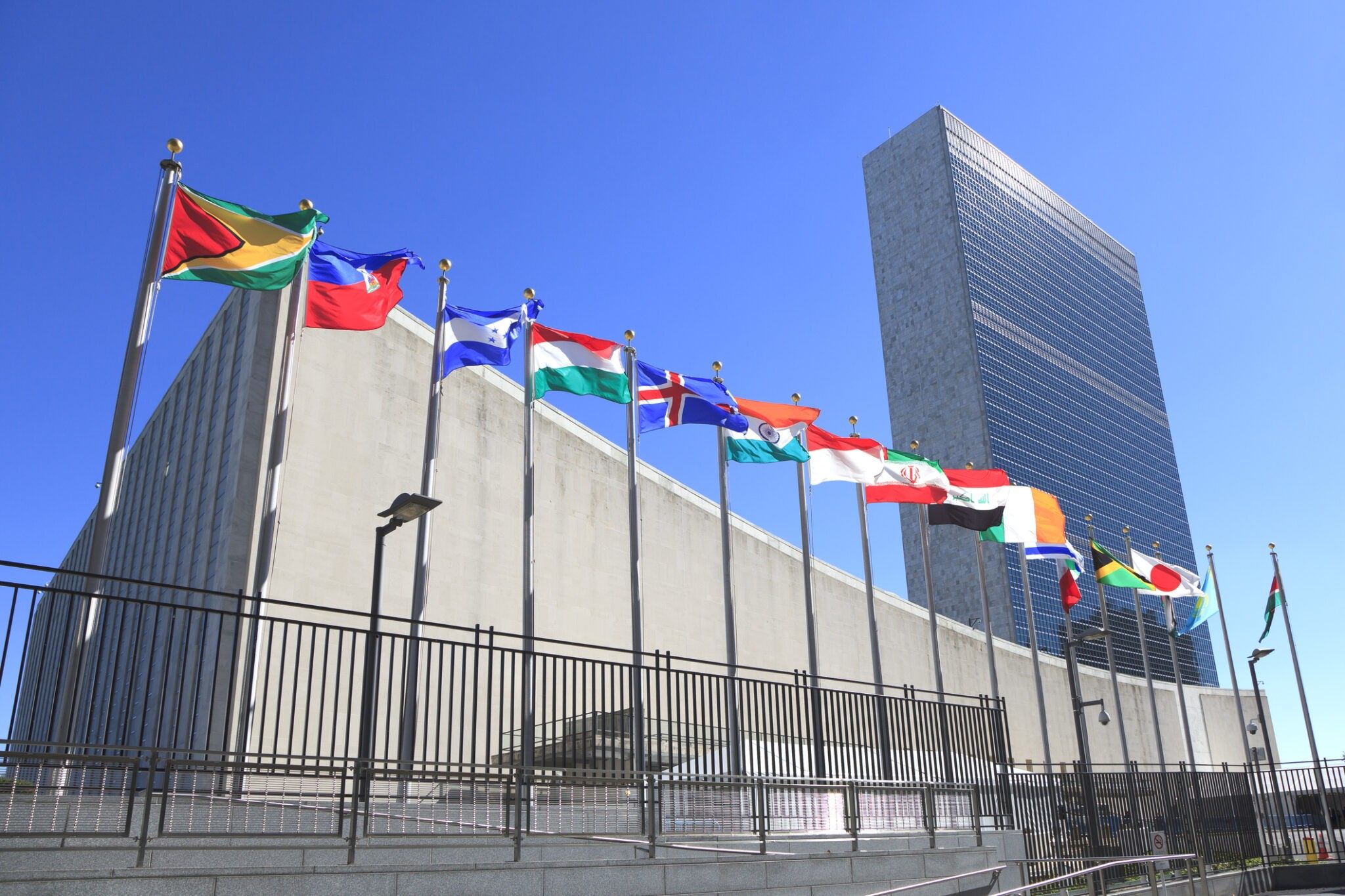
EXPERT PERSPECTIVE — Immediately after Russia’s invasion of Ukraine last month, the US government expelled 13 Russian diplomats working at the United Nations. It did so on the grounds they were Russian intelligence officers or operatives working under diplomatic cover. We do not know details about their alleged activities, but we do know something for certain: the Kremlin has a long history of using the United Nations (UN) for espionage.
During the Cold War, Soviet intelligence penetrated and subverted key parts of the UN. Occasionally these operations crashed into the public domain, when Western governments expelled Soviet ‘diplomats’. Contrary to what we might assume, such expulsions were not just grandstanding, but in fact paid off counterintelligence dividends for Western national security.
From its earliest days, the Soviet government viewed the UN as a platform for delivering its outward message to the world. The Soviet government was a permanent member of the UN Security Council, which granted it a right of veto, which it frequently used.
Between 1945 and 1983, the Soviet government cast 115 vetoes, as opposed to 38 by the US government and 20 by the British. Under the terms of the Yalta agreement reached between the Soviet government and Western powers in 1945, two of the Soviet Socialist Republics, Ukraine and Byelorussia (present day Belarus), were members of the UN in their own right. This effectively gave the Soviet Union three votes as opposed to the US government’s one.
These aspects of the Soviet Union’s open diplomacy at the UN are well known. Its clandestine activities there are less so. They are revealed in a British foreign office file that was declassified in September 2021, titled “Russian intelligence service operating under UN cover”. The thick, orange-covered file, stamped “Secret”, carries strict instructions for its handling. Reading it throws the US government’s expulsions today into sharp relief.
The file reveals that in the 1970s, the Soviet Union’s intelligence services, the KGB and the GRU, thoroughly penetrated the UN in New York and Geneva. Their officers used diplomatic cover for espionage. In fact, as the file makes clear, the KGB controlled key parts of the UN’s bureaucracy. This was happening when the Soviet government was supposedly enjoying a thaw in Cold War relations with West, during the period of détente.
The most sensational disclosure about Soviet penetration of the UN occurred in 1978. That year, its Undersecretary General, Arkady Shevchenko, a Soviet national, defected to US authorities – the highest-ranking Soviet official ever to do so. Shevchenko soon publicly revealed that he was a KGB officer.
Register for your own Expert-Level Briefing on Ukraine and How Private Sector Intelligence is Defining a New World with Mandiant CEO Kevin Mandia
Wednesday, March 23 from 1:30p – 2:30p ET
Shevchenko had been previously recruited by the CIA, which convinced him to continue— bravely— to operate as an agent in place at the UN. After his defection and extensive de-briefing, he revealed to the world that the Soviet intelligence presence at the UN went deep. The Soviet regime was cheating when it came to détente. His intelligence can be corroborated by other sources, which to this day, the Kremlin wants kept secret.
Shevchenko revealed that half of the Soviet nationals working at UN headquarters in New York, and in its Office in Geneva, were either intelligence officers or were explicitly assigned intelligence-related tasks. By obtaining posts in the UN Secretariat, the Soviet government effectively obtained a rolodex of information about civil servants of member states working there. The head of personnel at the UN in Geneva, for example, was a KGB officer.
The Soviet government also secured for itself virtually, in perpetuity, the post of Director of the Division for Policy Coordination in the Office of Personnel Services in New York. Soviet intelligence headquarters (‘the Center”) instructed its undercover officers at the UN that their success would be measured by intelligence collected, the secrets they stole, not their ostensible work for the UN. This contravened UN rules, which required nationals seconded there to work to work for the UN, not their home governments.
Hijacking UN positions gave the KGB rich pickings for recruiting Western nationals as espionage agents or agents of influence. A case in point occurred the same year as Shevchenko’s defection in 1978.
In May that year, the FBI arrested and successfully prosecuted two Soviet citizens working in the UN Secretariat on charges of espionage. They were caught trying to steal US anti-submarine warfare secrets from an agent who they believed they had recruited within the US navy, but their source was in fact, a double-agent, secretly working for the FBI. Its special agents arrested the Soviet officials at a shopping mall in New Jersey, as they attempted to retrieve a microfilm of defense secrets that their Navy ‘agent’ had dropped in an orange juice carton. They did not have diplomatic immunity, hence their arrest, but a third Soviet citizen picked up at the scene did, allowing him to face no penalty for what he had done.
The nature of Soviet espionage at the UN was further revealed when a Soviet military intelligence (GRU) officer working at the Soviet UN mission in Geneva, Vladimir Rezun, defected to British intelligence in July 1978. His mission, as he later publicly revealed under the alias Viktor Suvorov, was to steal scientific and technical secrets from western powers, especially the United States. His hunting ground was the UN Conference on Trade and Development (UNCTAD).
Soviet intelligence also penetrated other UN branches, like its Educational, Scientific and Cultural Organization (UNESCO), and also the World Health Organisation (WHO). The UN’s Department of Public Information was, Shevchenko revealed, subverted to become a mouthpiece for Soviet propaganda.
What about Western governments, we might ask? Were they not doing the same, using the UN as diplomatic cover for their spies? The answer is surely yes. Documentary evidence is hard to come by, but it would be naïve to suppose otherwise. Spies spy. Get over it.
Today’s constant barrage of information makes it easy for countries to wage disinformation campaigns and your emotions are the weapon of choice. Learn how disinformation works and how we can fight it in this short video. This is one link you can feel good about sharing.
Consider for a moment, however, the scale of Soviet presence at the UN, and you get a sense of the quantitative difference between how the Cold War’s two sides used (and apparently abused) the UN.
The Kremlin had a phalanx of intelligence officers masquerading as diplomats there. In November 1984, the Soviets had as many as 126 diplomats accredited to the UN in New York. This compared with 59 in the US mission and just 20 in the UK mission. As the newly unveiled British foreign office file notes, the majority of these Soviet officials were “engaged in intelligence work”. In 1980, the Swiss government estimated that of the 650 or so Soviet officials residing in Switzerland, at least 200 were engaged in espionage.
During the Cold War, both sides traded in expulsions of diplomats suspected, or established, to be intelligence officers. We might assume that such expulsions were gimmicks, tit-for-tat shows between the world’s two superpowers and their allies. They were, but they also served a purpose. In the espionage world, sometimes even a blunt instrument, like expulsions, is necessary. By expelling Soviet intelligence officers, Western governments deprived them of their recruiting grounds and an architecture for espionage in the West.
In September 1971, the British government expelled 105 Soviet ‘diplomats’ from Britain in what they dubbed, Operation FOOT, perhaps a sly reference to kicking them out. It was the largest such expulsion during the Cold War. By that year, the number of Soviet officials in London had swollen to nearly 1,000, including those accredited to the Soviet embassy, its Trade Delegation, as well as many Soviet “working wives”, a ploy the Kremlin used to circumvent British restrictions on the swelling Soviet diplomatic presence in London. There were so many Soviet officials in Britain that MI5 could not keep track.
Operation FOOT followed the defection of a KGB officer in Britain, Oleg Lyalin, who worked in its sabotage department (Department V). Operating under cover in the Soviet Trade Delegation, Lyalin revealed to MI5 that his mission was to prepare for sabotage operations against Britain when World War Three broke out—hot war between the Soviet Union and the West. Britain’s foreign secretary, Alec Douglas-Home, raised the issue of the huge number of Soviet intelligence officers on British soil with his Soviet counterpart, Andrei Gromyko. Absurdly, the Soviet foreign minister replied: “These figures you give cannot be true because the Soviet Union has no spies”. It was difficult for the British to know what to do with this level of Kremlin obfuscation.
Operation FOOT marked a watershed for British counter espionage during the Cold War. Previously classified KGB archives reveal that for the first time, Britain became a hard target for Soviet spy chiefs. One high-ranking former KGB officer, Oleg Kalugin, later claimed that FOOT dealt a blow to Soviet intelligence in Britain from which it never recovered.
The Kremlin’s espionage activities at the UN did not stop at the end of the Cold War. The KGB’s successor service in Russia, the SVR, continued its tradecraft. One SVR defector at the end of the 1990s, Sergei Tretyakov (known as ‘Comrade J), defected to the CIA from Russia’s UN mission in New York, where he was reportedly close to its then head, Sergei Lavrov.
Today, western intelligence agencies are hopefully recruiting disaffected Russian intelligence officers, working under diplomatic cover in the West, who will follow in the path of their Soviet predecessors. It is not difficult to imagine Russian foreign intelligence officers feeling despondent and disgusted by Putin’s war in Ukraine— now willing to share the secrets they know to be on the right side of history.
Hopefully Western case officers are busy with operations that one day we will read about in declassified files. With even better luck, the West will be able to obtain the modern-day equivalent to the KGB archivist, Vasili Mitrokhin. He was so horrified about the Soviet regime’s cruelty, that he smuggled an archive of KGB secrets (the “Mitrokhin Archive”) to the West, with the help of MI6. Today, the West needs a similar Mitrokhin to expose Putin’s darkest intelligence secrets.
Want to go a level deeper? Become a Cipher Brief Subscriber+Member for exclusive access to expert-led briefings on national security issues. Upgrade your access today.
Sharing informed perspectives is important. Opinion pieces represent the diverse views of The Cipher Brief audience and do not represent views of The Cipher Brief.
Read more expert-driven national security insights, perspective and analysis in The Cipher Brief because National Security is Everyone’s Business
Related Articles

SUBSCRIBER+EXCLUSIVE INTERVIEW — With a mere 1.2 million citizens, Estonia is among NATO’s smallest members, but its contributions to Ukraine have led the pack by […] More

SUBSCRIBER+EXCLUSIVE INTERVIEW — Ukraine was hit by a fresh round of Russian missile attacks on Thursday, strikes that targeted and damaged the country’s power grid […] More
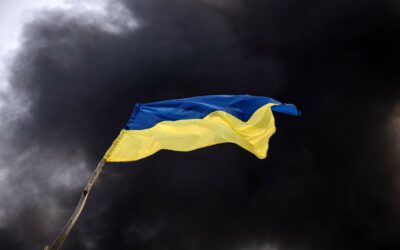
BOTTOM LINE UP FRONT – In the spring of 2022, Ukraine beat back a Russian assault on the nation’s capital and punished the invaders on […] More
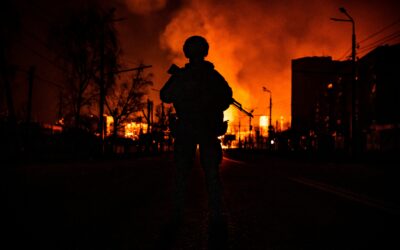
SUBSCRIBER+EXCLUSIVE — The Ukraine war has reached a “pivotal moment,” a “critical stage,” an “inflection point“ – all phrases used to describe the current situation […] More
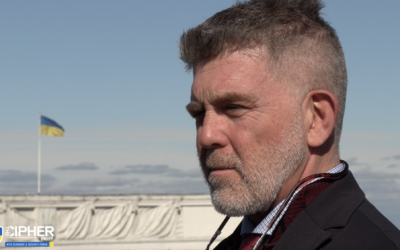
SUBSCRIBER+EXCLUSIVE EXPERT PERSPECTIVE — During the first week of April, The Cipher Brief traveled with a delegation of national security and military experts led by […] More
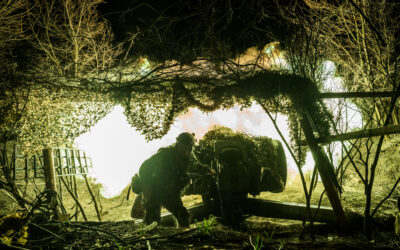
A DISPATCH FROM KYIV WITH GENERAL DAVID PETRAEUS (RET.) – Moscow is mobilizing more troops to bolster it’s frontline in Ukraine while stepping up remote-guided […] More
Search